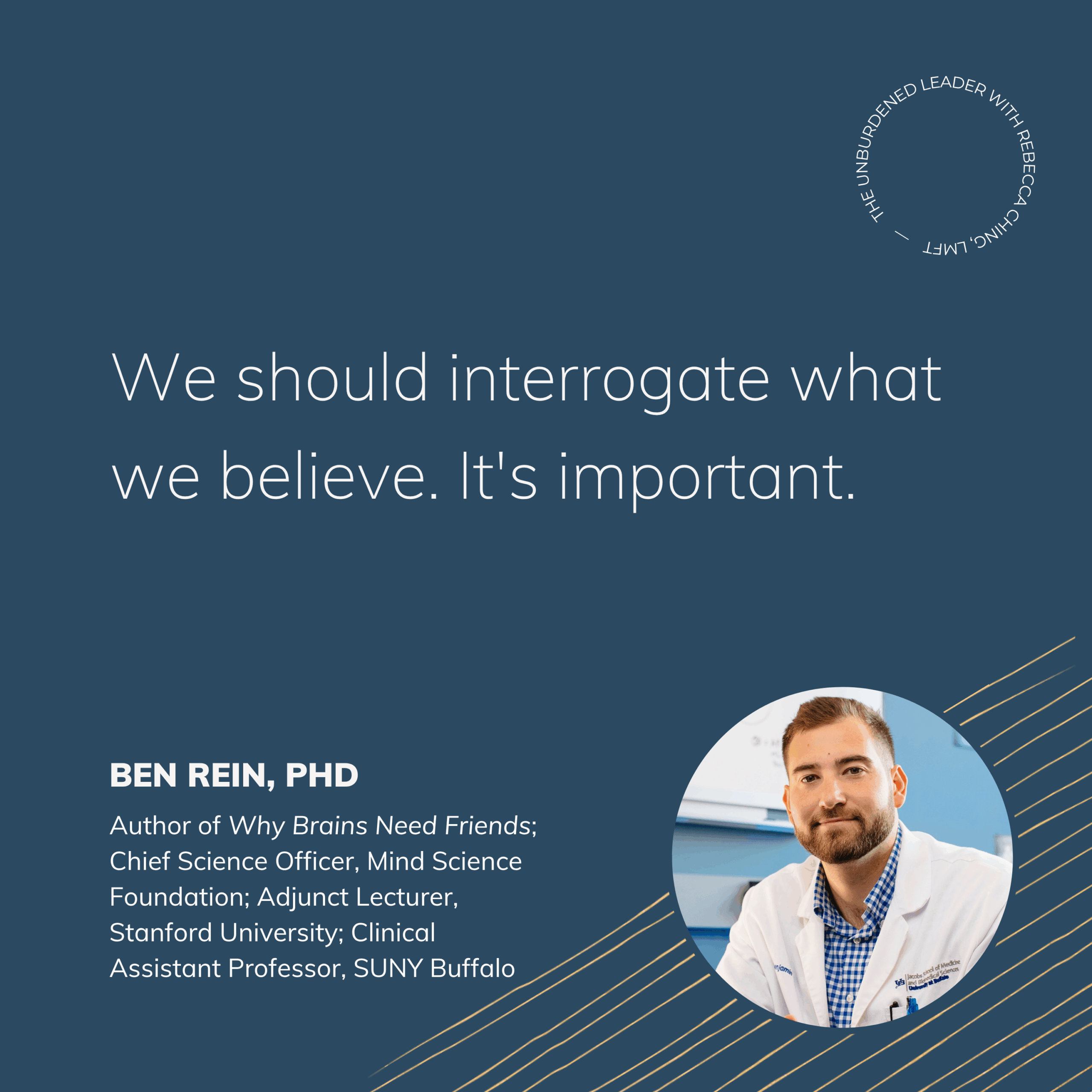We live in an age where truth twists into confusion, opinion drowns out data, and it’s increasingly difficult to figure out whose expertise we can trust.
Where did our mistrust in expertise come from? Its roots stretch back to deliberate misinformation campaigns beginning in the 1950s spread by the likes of Big Tobacco, Big Oil, and conservative church movements. Then social media poured gasoline on the fire, accelerating the spread of misinformation and making sowing division highly profitable.
Misinformation campaigns take advantage of our brains’ natural tendency to protect the familiar and mistrust outgroups. And they capitalize on the very real betrayals people have experienced at the hands of corporations, governments, schools, and healthcare systems.
Our challenge now isn’t just knowing the facts, it’s interrogating our own beliefs, asking where our evidence comes from, and resisting the pull of certainty. As leaders, we need to discern who we give our attention to, practice critical thinking, resist manufactured controversy, and platform voices committed to both truth and connection.
Today’s guest is a neuroscientist and author of Why Brains Need Friends, who works to make science accessible, relational, and rooted in respect. He doesn’t focus on winning arguments or shaming people into submission. He focuses on bridging divides, building trust, and reminding us that our brains–and our lives–are wired for connection.
Ben Rein, PhD is an award-winning neuroscientist and science communicator. He serves as the Chief Science Officer of the Mind Science Foundation, an Adjunct Lecturer at Stanford University, and a Clinical Assistant Professor at SUNY Buffalo. He has published over 20 peer-reviewed papers on the neuroscience of social behavior, and is the author of Why Brains Need Friends: The Neuroscience of Social Connection. In addition, Rein educates an audience of more than 1 million social media followers and has been featured on outlets including Entertainment Tonight, Good Morning America and StarTalk with Neil DeGrasse Tyson. He has received awards for his science communication from the National Academies of Science, Engineering, and Medicine, the Society for Neuroscience, and elsewhere.
Listen to the full episode to hear:
- How an especially vivid nightmare redirected Ben’s path to neuroscience
- Why the division and isolation of modern life is so bad for our brains and overall health
- How engaging with strangers isn’t as awkward as we often think it is, and why we should do it more
- How small social interactions build our sense of belonging, community, and wellbeing
- Why we need to recognize and then override our gut reactions to those we perceive as belonging to outgroups
- How social media sound bites vastly oversimplify the complex and unknown systems in our brains
- Why Ben’s primary mission to to help people understand the value of looking to data and evidence rather than personalities and experiences
- Why we all have to get better at fact-checking and questioning why we’re ready to believe something
Learn more about Dr. Ben Rein:
Learn more about Rebecca:
- rebeccaching.com
- Work With Rebecca
- The Unburdened Leader on Substack
- Sign up for the weekly Unburdened Leader Email
Resources:
- Golden Holocaust: Origins of the Cigarette Catastrophe and the Case for Abolition, Robert N Proctor
- “Assessing ExxonMobil’s climate change communications (1977–2014),” Geoffrey Supran and Naomi Oreskes, 2017 Environmental Research Letters 12 084019
- The Creationists: From Scientific Creationism to Intelligent Design, Ronald L. Numbers
- “Misinformation and Its Correction Continued Influence and Successful Debiasing,” Stephan Lewandowsky et al., 2012 Psychological Science in the Public Interest, 13(3)
- The Logic of Scientific Discovery, Karl Popper
- SciSpace
- Sapiens: A Brief History of Humankind, Yuval Noah Harari
- Dune, Frank Herbert
- The Poisoner’s Handbook: Murder and the Birth of Forensic Medicine in Jazz Age New York, Deborah Blum
- Tory Lanez – Gangland x Fargentina 4EVR (feat. Wolfgang Peterson & Kai)
- Hard Knocks: Training Camp
- Courage the Cowardly Dog







Comments +